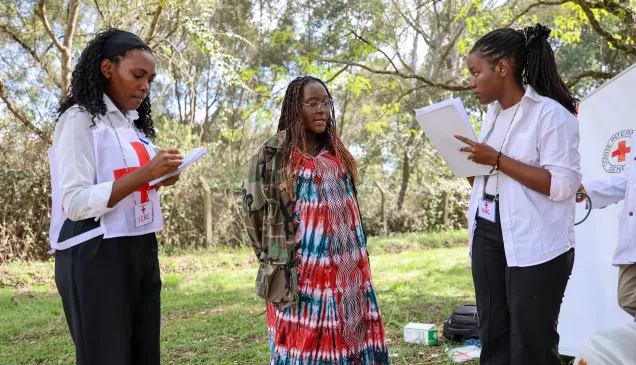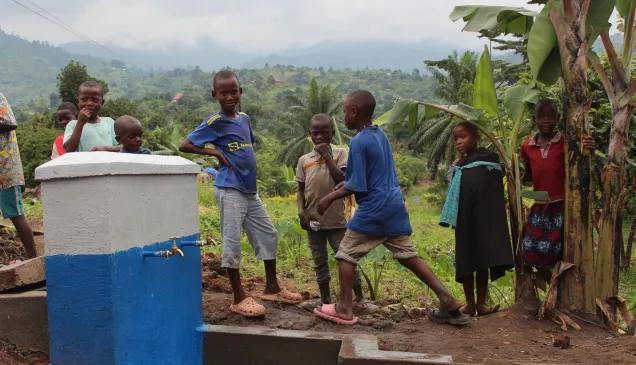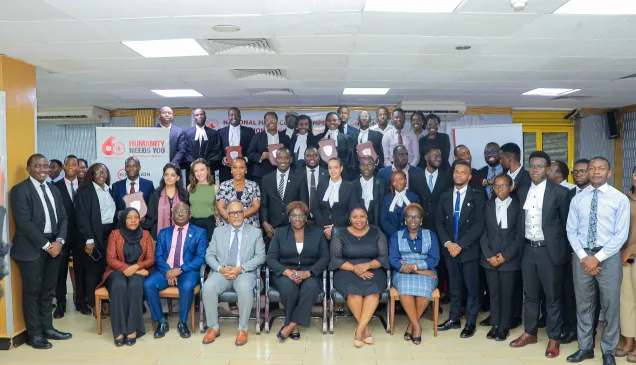KAMPALA: Prisons Conference Ends with Goodwill for Proper Maintenance of Correctional Facilities
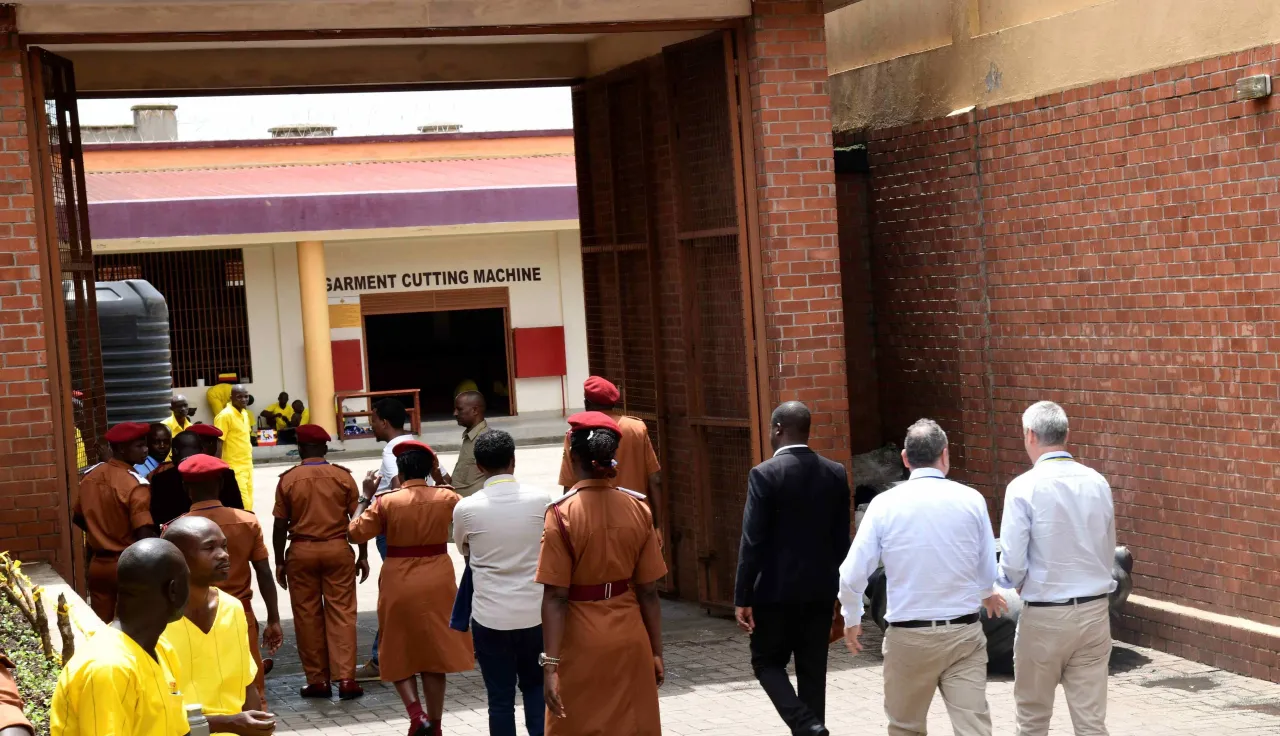
“African prisons are faced with overcrowding, poor operations and maintenance presenting serious security and health challenges to inmates and warders alike, leading to human rights abuses.”
These remarks, made by ACSA Principal Officer, Dr. Frances Omane-Ado, Deputy Director General, Ghana Prisons Service at the opening of the Workshop on Prison Infrastructure (WIPA) summarized the challenges facing prisons in Africa.
From 14th – 17th November, Commissioner Generals and officers in charge of infrastructure and planning in prisons across Africa met in Kampala, Uganda to engage and share best practices and lessons learnt from their contexts.
The meeting, which brought together 69 senior correctional officers from 11 African countries, ICRC experts, ACSA officials, International Corrections and Prisons Association (ICPA), and African Commission on Human and Peoples' Rights (ACHPR) was convened by the International Committee of the Red Cross (ICRC) and hosted by the Uganda Prisons Services (UPS).
Uganda's Minister for Internal Affairs Maj. Gen (rtd) Kahinda Otafiire noted that many prisons in Africa were built during colonial times which are inadequate for the growing prison populations with competing needs taking away from infrastructure budgets. The Minister made the remarks at the official opening of the meeting and reiterated that his work is to support correctional services become correctional institutions and challenged African countries to ensure government takes up its role in assisting people instead of being over -reliant on institutions like the ICRC.

Uganda Minister for Internal Affairs with delegates of the Workshop on Prison Infrastructure during the opening ceremony.
Two of Uganda's prisons provided an apt setting to look at maintenance of a newly built prison and an old one. Delegates visited Kitalya Prison, recently opened in 2020 with better infrastructure and planning on the surveillance, electricity, kitchen facilities, medical centers, and communication systems. On a second day, the delegates visited Luzira Maximum Prison built in 1925 this time comparing the challenges of maintaining an older prison.
Following the visit to Kitalya prison, UPS Commissioner of Prisons Wilson Magomu noted that;
Simple maintenance in prisons will not remain simple anymore given that maintenance planning is now being given priority in Ugandan prisons. The maintenance requirements are based on inmates' security and safety, and staff and human rights compliance to ensure durability of structures.
Dr Johnson Byabashaija, Uganda's Commissioner General of Prisons, noted that the total occupancy in Ugandan prisons stood at 366% with the congestion affecting the quality of life and accommodation. He said that the discussion on prison infrastructure was relevant in this time even as the UPS continues to push for more funding for its prisons and political goodwill to make it happen.
The workshop concluded with a call for African states to place a higher priority on humanizing prisons within the continent by addressing the main challenges facing them on a national, sub-regional and continental basis.
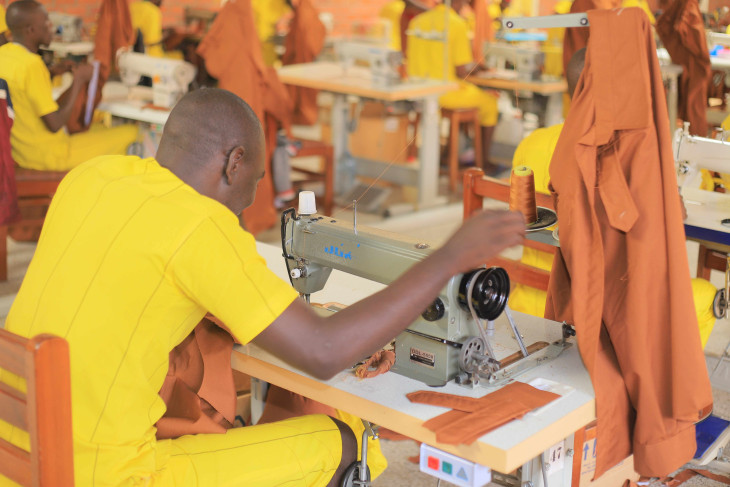
Inmates at Kitalya Prisons engage in tailoring as one way of rehabilitating the prisoners encouraged by the Uganda Prisons Services.
Through a joint communique issued at the end of the workshop, participants reaffirmed the centrality and pertinence of humane conditions and treatment of prisoners as expressed in the Nelson Mandela rules which require prisoners to be treated with respect due to their inherent dignity and value as human beings. They also stressed that prison infrastructure was a key ingredient in establishing a humane environment for future reintegration of prisoners.
This final aim provided an excellent opportunity to launch the Prisons Maintenance Guide – Challenges and Principles of Prison Maintenance. The guide consolidates work undertaken over several years by staff of the International Committee of the Red Cross (ICRC) with prison authorities of several African countries who have recognized the need to establish a maintenance system or to improve their existing system.
In presenting the guide, Jean-Marc Zbinden, ICRC's Water and Habitat advisor in detention noted, "This guide is representative of Africa's experience which can be shared with the rest of the world. We must not forget that maintenance, whether preventive or reactive, involves a number of human, material and financial resources; if it is not carried out correctly, it is the inmates who will ultimately pay the price of poor maintenance." He hoped that the guide will assist all those present to improve the way countries perform maintenance In Africa.
Christoph Sutter, ICRC Kampala head of Delegation celebrated the success of the workshop noting it had consolidated and fostered further exchanges among prison and correction services between participating states. He praised UPS's commitment to professionalize engineering and estate services, leading to Uganda hosting the workshop and highlighted the collaboration of ACSA, AU ACHPR and the International Corrections and Prisons Association (ICPA) in making the workshop a success.

